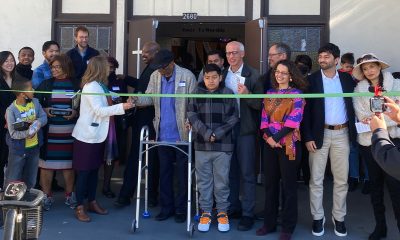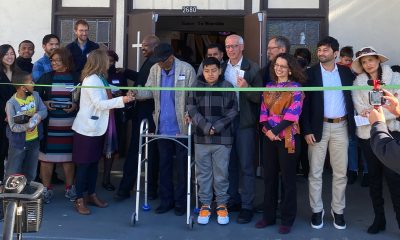Activism
Faith Baptist Church Becomes Oakland’s First Official Resiliency Hub
Faith Baptist Church was the recipient of the U.S. Green Building Council’s Green Legacy Award. Faith was chosen out of a pool of dozens of applicants for the award. The key differentiator was the Solar Battery Storage project. With that, Faith Baptist has the ability to totally exit the PG&E grid and generate 100% energy from its solar panels. That makes Faith Baptist a potential energy distributor.
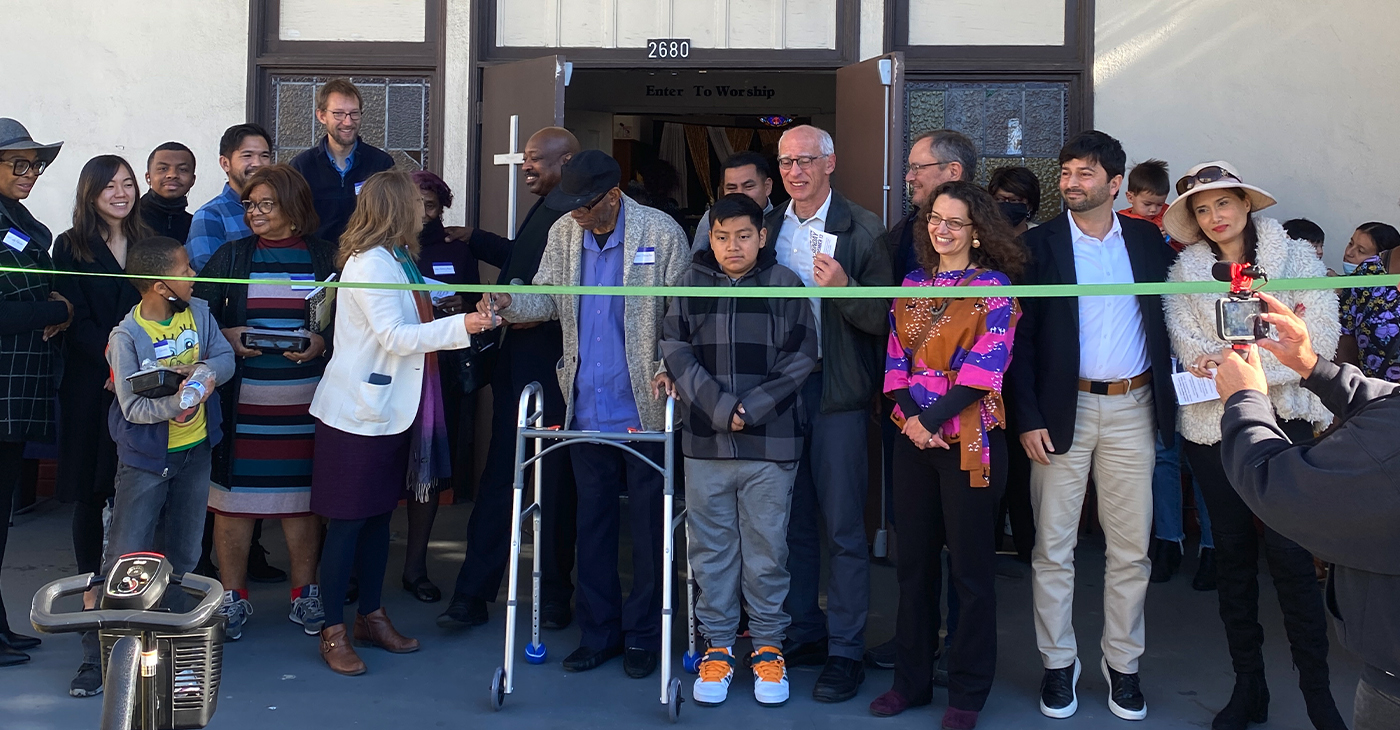
By Curtis O. Robinson, Sr., M.A., Harvard University fellow, ’19, Senior Pastor, Faith Baptist Church
So, when I say that Faith Baptist is Oakland’s first Resiliency Hub, the first question that many people ask is, “what is a resiliency hub?”
In an article from the Christian Science Monitor entitled “Resilience hubs: A new approach to crisis response,” the author writes, “Things that shock a community have to do with climate, but more urgently they have to do with systemic inequities.”
He was referring to police shootings, civic unrest, the growth of homeless encampments and more. The resiliency hub approach to these inequities uses a respected local organization, such as a church or community center, and bolsters it to help neighborhoods prepare for crises — hurricanes, heat waves, pandemics or unrest — and to respond and recover from them.
When Faith was approached with the idea of solar panels for its rooftop as a source of heat, the decision was relatively a no-brainer.
As a House of Worship, there is a collective emphasis on the workings of God in the universe. The first job that God gave humanity was to tend the Garden. When it comes to environmental justice, our goal then is to take care of this place called planet Earth.
The world is now in an environmental tailspin. However, with technology that teaches us how to create sustainable outcomes, sprinkled with common sense, we can achieve an environmental balance that can create safe spaces environmentally for our children and for our future.
Faith Baptist Church was the recipient of the U.S. Green Building Council’s Green Legacy Award. Faith was chosen out of a pool of dozens of applicants for the award. The key differentiator was the Solar Battery Storage project.
With that, Faith Baptist has the ability to totally exit the PG&E grid and generate 100% energy from its solar panels. That makes Faith Baptist a potential energy distributor.
With the help of California Interfaith Power and Light and energy experts from the U.S. Green Building Council, we held a ribbon-cutting ceremony on Nov. 14.
Joining us, among others, were Susan Stephenson, executive director of California Interfaith Power and Light, Oakland City Councilman Dan Kalb of District 1, Shayna Hirschfield- Gold, Oakland’s Climate Program manager and members of Faith Baptist and the Pentecostal community that shares our space and Green Building volunteers.
We bask in the glory of energy independence, because we now tap into clean energy from above and not dirty energy from below.
Publisher’s note: Rev Curtis Robinson also is a columnist for the God on Wall Street column for the Post News Group.
Activism
Oakland Post: Week of December 25 – 31, 2024
The printed Weekly Edition of the Oakland Post: Week of December 25 – 31, 2024

To enlarge your view of this issue, use the slider, magnifying glass icon or full page icon in the lower right corner of the browser window. ![]()
Activism
Living His Legacy: The Late Oscar Wright’s “Village” Vows to Inherit Activist’s Commitment to Education
Kingmakers of Oakland (KOO), a nonprofit organization that works to improve educational and life outcomes for Black boys and men, stated that “Oscar Wright is one of the most prolific, consistent, and committed advocates of equity for Black students and Black Families here in Oakland for the past six decades.”
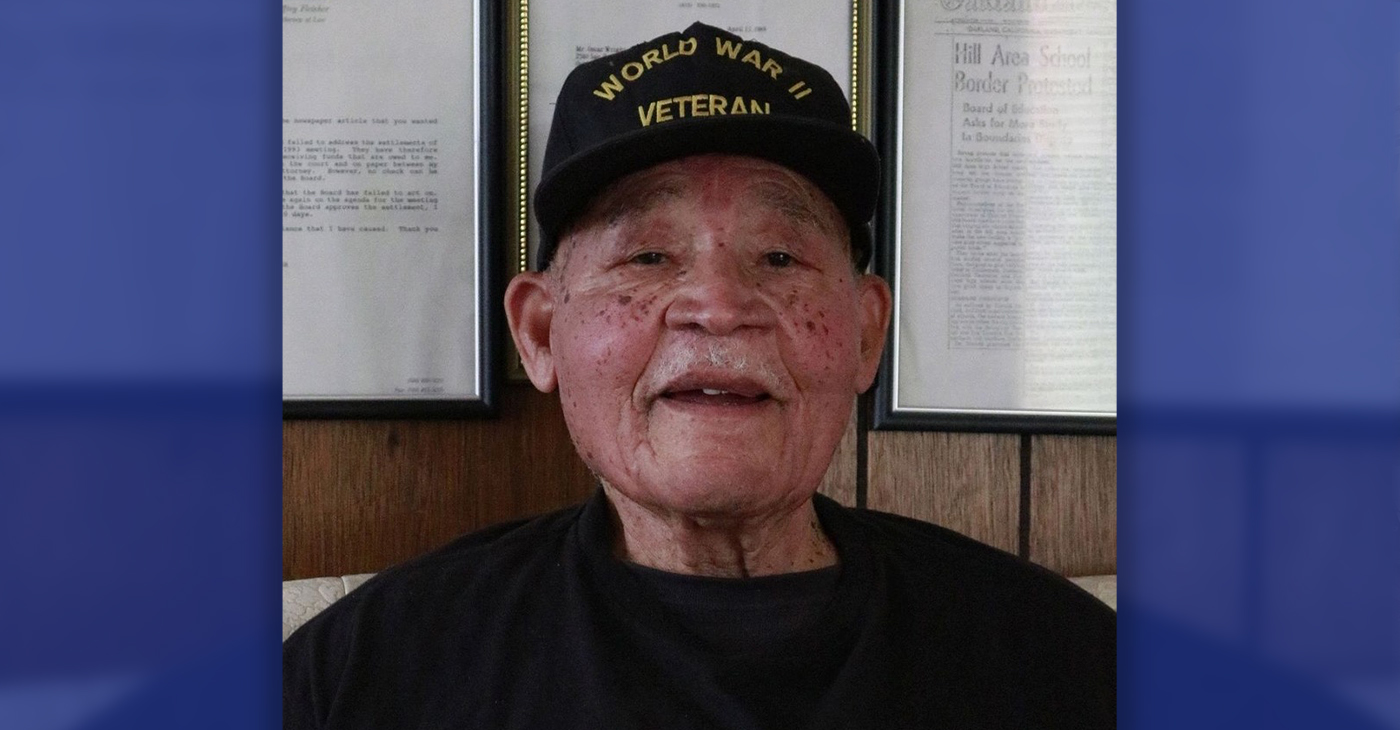
By Antonio Ray Harvey, California Black Media
Activists mourning Oscar Carl Wright’s death, have pledged to continue his lifelong mission of advocating for Black students and families in Northern California.
Wright, 101, who passed away on Nov. 18, was involved in Oakland’s educational affairs until his death.
Now, friends and admirers acknowledge that carrying on his legacy means doubling down on the unfinished work that Wright dedicated his life, time, and resources to, according to Y’Anad Burrell, a family friend and founder of San Francisco-based Glass House Communications (GHC).
“Mr. Wright did a lot of work around equity, specifically, for Black students based on their needs — whether it was tutoring, passing classes, or graduating,” Burrell said.
Wright became a champion for his children’s education, recognizing the disparities between their school experiences and his own upbringing in the Mississippi Delta.
Burrell told California Black Media (CBM) that the crisis of unequal access to resources and a quality education continues to affect the Oakland Unified School District (OUSD).
According to Oakland Reach, in the city of Oakland, only 3 in 10 Black and Brown students are reading at or above grade level. In addition, only 1 in 10 are doing math at or above grade level.
Oakland REACH is a parent-run, parent-led organization. It aims to empowers families from the most underserved communities to demand high-quality schools for their children.
Wright’s work as an activist had impact across the state but he was primarily known in the Bay Area. Alongside the Black United Front for Educational Reform (BUFER), he filed a complaint against OUSD for violating the Civil Rights Act of 1964.
In 2000, the OUSD school board proposed an action plan to address educational inequity, but it was never implemented.
Wright later founded the African American Honor Roll Celebration at Acts Full Gospel Church, an award that recognizes Black students with a grade point average of 3.0 or better. Each year, more than 1,000 students are honored at this ceremony.
Kingmakers of Oakland (KOO), a nonprofit organization that works to improve educational and life outcomes for Black boys and men, stated that “Oscar Wright is one of the most prolific, consistent, and committed advocates of equity for Black students and Black Families here in Oakland for the past six decades.”
Burrell said that one of the main reasons Wright’s work was so essential for families and children in Oakland that is the direct relationship between acquiring a quality education and affording quality housing, maintaining food security, achieving mental wellness, and securing stable employment.
Wright was the child of sharecroppers from Coahoma County, Mississippi. He attended Alcorn State University, a Historically Black College and University (HBCU).
In the late 1950s, Wright and his family relocated to the Bay Area where he worked as a contractor and civil engineer. He later became an active member of the National Association for the Advancement of Colored People (NAACP).
Burrell said the people who will carry on Wright’s work are part of a “village” that includes KOO’s CEO Chris Chatmon. Wright was a mentor to Chatmon.
“It will not be one entity, one person, or one organization that picks up the baton because it was a village effort that worked alongside Mr. Wright for all these years,” Burrell said.
Burell says that legacy will live on.
Activism
Protesters Gather in Oakland, Other City Halls, to Halt Encampment Sweeps
The coordinated protests on Tuesday in San Francisco, Oakland, Vallejo, Fresno, Los Angeles and Seattle, were hosted by Poor Magazine and Wood Street Commons, calling on cities to halt the sweeps and focus instead on building more housing.
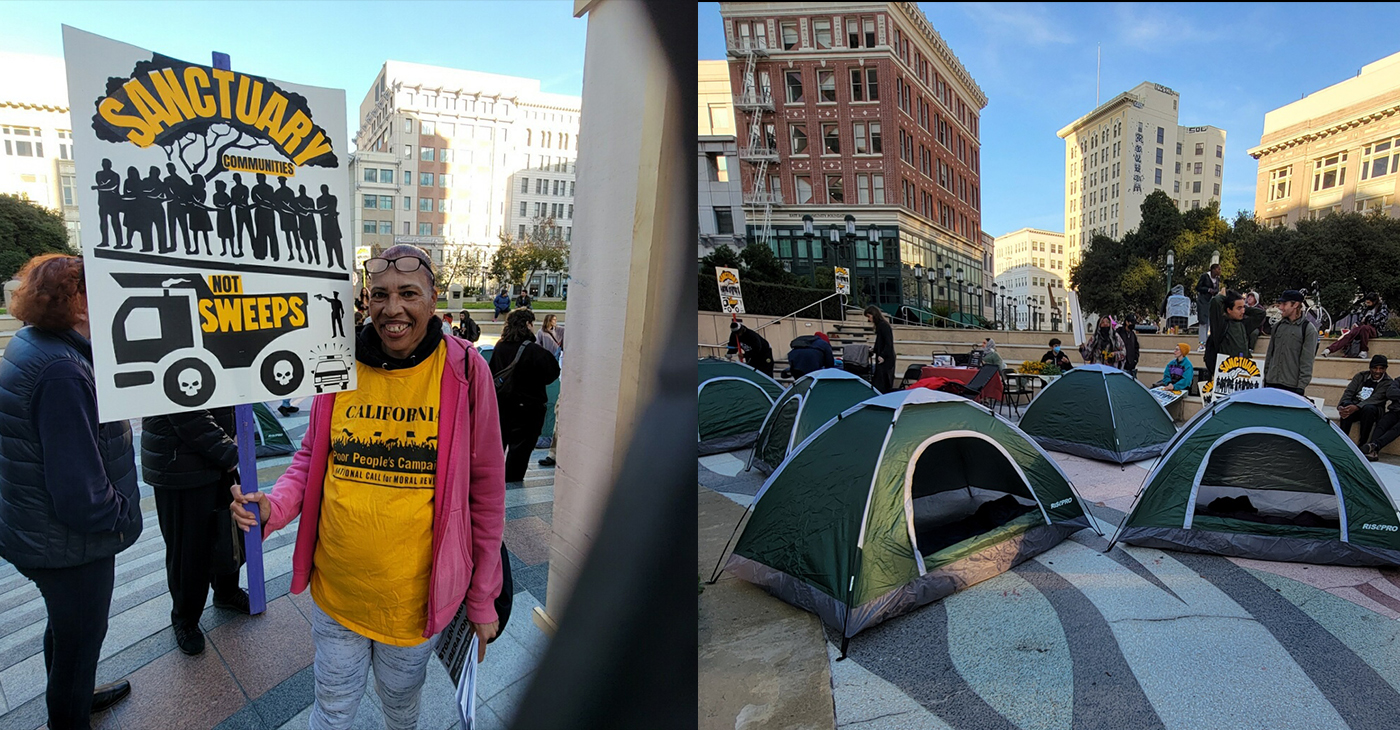
By Post Staff
Houseless rights advocates gathered in Oakland, San Francisco, Los Angeles, and other city halls across California and Washington state this week protesting increased sweeps that followed a U.S. Supreme Court decision over the summer.
The coordinated protests on Tuesday in San Francisco, Oakland, Vallejo, Fresno, Los Angeles and Seattle, were hosted by Poor Magazine and Wood Street Commons, calling on cities to halt the sweeps and focus instead on building more housing.
“What we’re dealing with right now is a way to criminalize people who are dealing with poverty, who are not able to afford rent,” said rights advocate Junebug Kealoh, outside San Francisco City Hall.
“When someone is constantly swept, they are just shuffled and things get taken — it’s hard to stay on top of anything,” said Kealoh.
Local houseless advocates include Victoria King, who is a member of the coordinating committee of the California Poor People’s Campaign. She and Dr. Monica Cross co-chair the Laney Poor People’s Campaign.
The demonstrations came after a June Supreme Court ruling expanded local governments’ authority to fine and jail people for sleeping outside, even if no shelter is available. Gov. Gavin Newsom in California followed up with an order directing state agencies to crack down on encampments and urging local governments to do the same.
Fresno, Berkeley and a host of other cities implemented new rules, making it easier for local governments to clear sidewalk camps. In other cities, such as San Francisco, officials more aggressively enforced anti-camping laws already on the books.
-

 Activism4 weeks ago
Activism4 weeks agoOakland Post: Week of November 27 – December 3, 2024
-

 Activism2 weeks ago
Activism2 weeks agoButler, Lee Celebrate Passage of Bill to Honor Congresswoman Shirley Chisholm with Congressional Gold Medal
-

 Activism2 weeks ago
Activism2 weeks agoPost News Group to Host Second Town Hall on Racism, Hate Crimes
-

 Activism2 weeks ago
Activism2 weeks agoDelta Sigma Theta Alumnae Chapters Host World AIDS Day Event
-

 Business2 weeks ago
Business2 weeks agoLandlords Are Using AI to Raise Rents — And California Cities Are Leading the Pushback
-

 Activism3 weeks ago
Activism3 weeks agoOakland Post: Week of December 4 – 10, 2024
-

 #NNPA BlackPress4 weeks ago
#NNPA BlackPress4 weeks agoNational Action Network Announces 2025 Inauguration Day Rally
-

 Activism2 weeks ago
Activism2 weeks agoOakland Post: Week of December 11 – 17, 2024


